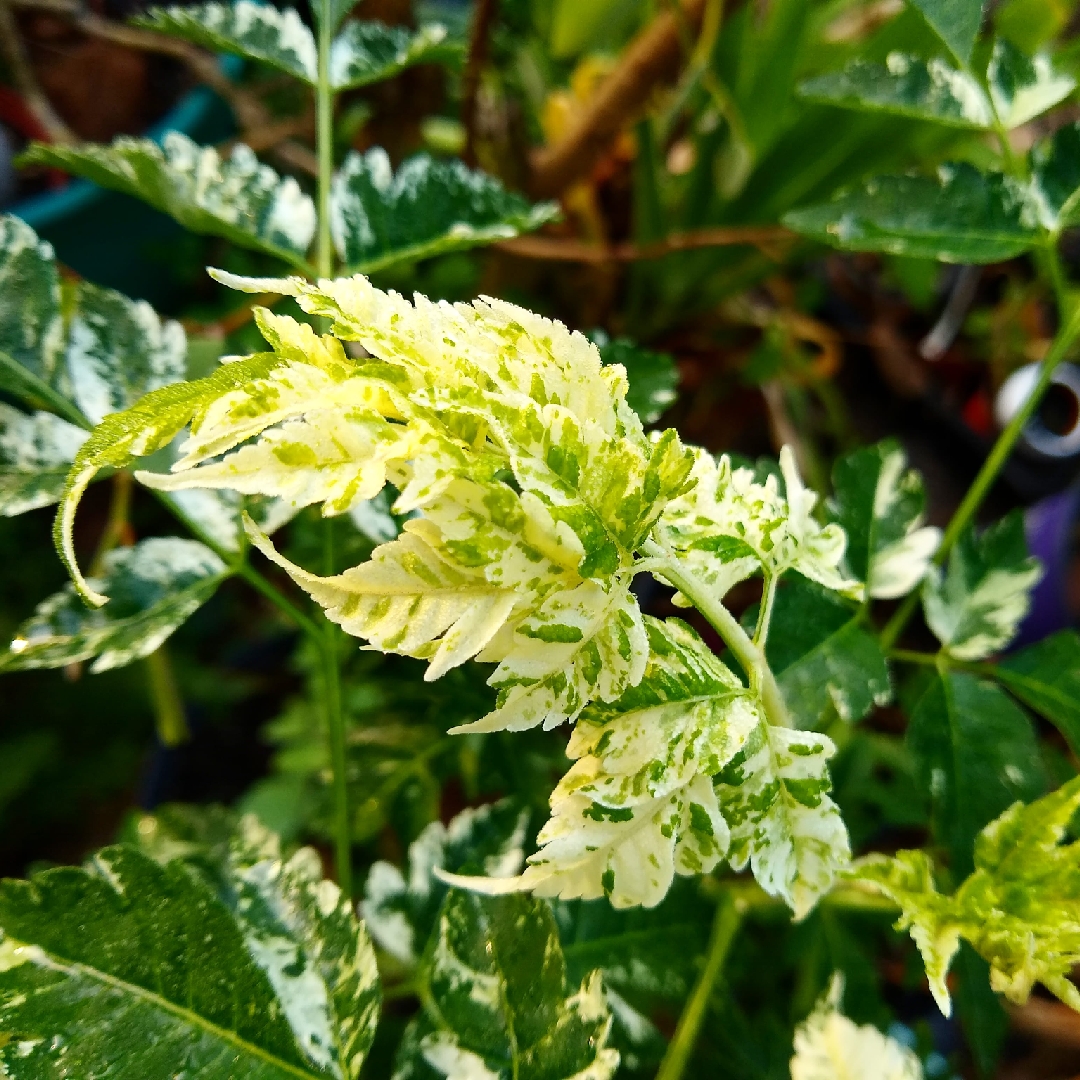
Melia azedarach
Chinaberry
Melia azedarach is a deciduous umbrella-shaped tree in the mahogany family. The leaves are up to 50 cms. long and are similar in structure to an ash tree, with leaflets that are darker on the upper side than the under-side, and have serrated edges. It bears clusters of small, fragrant pale purple flowers that have 5 petals, which are followed by the marble-sized drupe fruit that remain on the tree all Winter. The fruit become whiter with age, and also become wrinkled, and loved by birds.(The fruit are toxic to humans when eaten). This tree is considered invasive in some parts, due to the fact that birds drop the fruit-stones and new trees grow easily from the dropped stones.
-
Full sun to partial shade
-
Occasional watering
-
Frost Hardy: 23F (-5°C)
-
All soil conditions
Common name
Chinaberry
Latin name
Melia azedarach
type
Tree
family
Meliaceae
ph
5.5 - 8.5 Acid - Neutral
Plant & bloom calendar
-
Best time to plant
-
When the plant will bloom
full grown dimensions
 9.00 M
12.00 M
9.00 M
12.00 M
Melia azedarach
Melia azedarach is a deciduous umbrella-shaped tree in the mahogany family. The leaves are up to 50 cms. long and are similar in structure to an ash tree, with leaflets that are darker on the upper side than the under-side, and have serrated edges. It bears clusters of small, fragrant pale purple flowers that have 5 petals, which are followed by the marble-sized drupe fruit that remain on the tree all Winter. The fruit become whiter with age, and also become wrinkled, and loved by birds.(The fruit are toxic to humans when eaten). This tree is considered invasive in some parts, due to the fact that birds drop the fruit-stones and new trees grow easily from the dropped stones.
Flowering
From Late Spring TO Early Summer
The flowers appear in late Spring
Planting
From Mid Spring TO Late Spring
Chinaberry trees grow very readily from the fruit-stones - so easily, in fact, that this tree is considered invasive in some areas. Plant seedlings in pretty much any soil, in a reasonably sunny position. Water well to establish the tree.

















